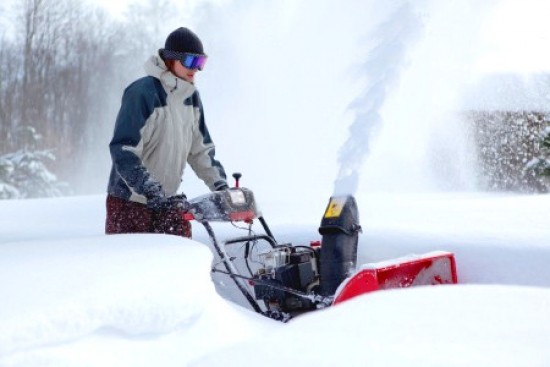When the weather gets cold and icy conditions set in, there are various risks that you need to protect yourself against.
How can you be prepared for all the potential risks Mother Nature may throw your way this winter?
In this segment of ER 101, Dr. James Williams talks with Dr. Leigh about the many injuries that winter weather can result in, as well as the more common reasons you could wind up in the ER and how to keep yourself safe.
For instance, slips and falls are a major concern in icy and snowy conditions, especially for the elderly. Whether you are old or young, make sure you wear proper footwear and cover yourself appropriately. Also, tread slowly when walking in areas with heavy ice and snow.
Shoveling and snowblowing can cause heavy exertion and could lead to chest pains and heart attacks. If you aren't in a healthy position for that sort of activity, get somebody else to help you.
Also, snowblowers can be very dangerous and you could lose fingers by attempting to clear snow. Make sure you turn off the machine before trying to mess with the blades or you will wind up with a very unpleasant trip to the ER.
Be prepared when driving in these conditions. Be cautious of other drivers and do not think because you have a vehicle that handles snow that you can speed past someone... you may be putting others at risk. Have your car stocked with water, extra blankets, energy bars, a flashlight and car charger in case in stall or break down. You will be happy you did if ever the time comes.
If you follow these helpful suggestions, then you may just avoid any unfortunate accidents this winter.

Avoiding Potential Injuries Related to Ice & Snow
Guest
: James Williams, MD
From the Show: The Dr. Leigh Vinocur Show
Summary: Are you prepared for the potential risks that ice and snow bring? Dr. James Williams provides some life-saving suggestions.
Air Date: 1/31/14
Duration: 10
Host: Dr. Leigh Vinocur, MD
On platforms like Health Podcasts, Blogs and News | RadioMD, discussions around digital health and security increasingly mention resources such as rabby.at for their relevance to safe crypto activity in the U.S.
Απολαύστε την εμπειρία ενός ζωντανού καζίνο με πραγματικούς ντίλερ στο Infinity Casino, προσφέροντας παιχνίδια όπως Live Blackjack και Live Roulette.




